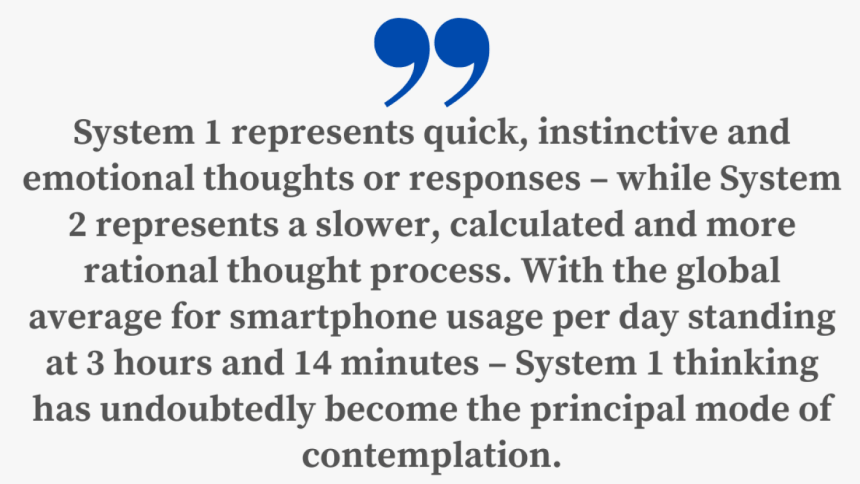Why we need traditional media to survive

Print media is dying. And social media has become a toxic platform for the exchange of what maybe widely divergent views. These are perspectives which carry factual weight. Having said this, the curation of an international online ecosystem has undoubtedly brought with it enhanced citizens participation across democratic processes and broader social movements – but at the same time, one feels that the role of independent media and journalism as bearers of the foundations of democratic systems, is slowly but surely diminishing.
The good thing about social media is that everyone can have an opinion or a voice on a particular issue – which unfortunately also seems to be a bad thing in certain cases. This is where it gets tricky. On one end norms such as freedom of thought and expression are universally accepted as pillars of constitutionally democratic systems – limiting free speech in any form is thus a touchy subject. On the other end there are those who argue that free speech has its defined limits – free speech can be censored if one is using their perspectives as a means to incite hate or violence. Policymakers have not found a concrete answer to which of these two positions is correct and applicable in the context of a connected and deeply integrated global political order. But the truth of the matter is that if numbers are to be trusted – then the decline of traditional media at the cost of social media is the reality of the 21st century. Therefore, the question naturally arises – why are people transitioning towards social media and ditching traditional media as legitimate mediums of public engagement and news?
Daniel Kahneman – the 2002 Nobel Prize winner in economics – introduced two behavioural systems which configure the human mind, and can be used to explain how people behave and react. System 1 represents quick, instinctive and emotional thoughts or responses – while System 2 represents a slower, calculated and more rational thought process. With the global average for smartphone usage per day standing at 3 hours and 14 minutes – System 1 thinking has undoubtedly become the principal mode of contemplation. People are comfortable reacting on issues and topics that they are interested in – and do so via impulse and by constructing snap conclusions to subjects that they may not be fully aware of.
This has become the trend and has been leveraged by political actors across the world to either market partisan objectives or in other cases, misused to spread hate and misinformation – System 2 thinking dominates the internet and is as such, a direct threat to the idea of evidence-based analysis and judgement. And with the internet being a prima facie global marketplace of sorts – economic agents such as Twitter or Amazon have leveraged the uniqueness of the information technology network to institute unwavering levels of control in the lives of people. And then we have algorithms – and I will be honest in stating that I do not have the expertise to understand how algorithms work. Importantly though, the usage of machine learning to categorise content based of altered ranking signals, is a complex arena which has deep social implications developing biased eco-chambers and manipulating perspectives.

Now it is important to state that that the internet has indeed played a fundamental role in democratising our civilisation. But the augmentation of eco-chambers and System 1 thinking has also enabled the drastic degradation of traditional media outlets – characterised by a loss of public trust as well as receding circulation or viewership numbers of newspapers and mainstream news channels, particularly in the West. If you think about it, a large component of the global population source news mostly through social media posts or statuses – and this forms the core of their political understanding. The average person does not have time to read a long-form article or an Op-Ed piece which comprises of facts, figures and evidence-based arguments – it may not only be deemed boring, but more importantly, it requires people to spend time and effort in understanding the analysis. I am not immune from this. Why should we therefore, look towards traditional media, if we can instinctively get our news from social media?
The catch to this is concerning – the overdependence on System 1 thinking is deeply troubling in an era of fake news and disinformation. The mobilisation of WhatsApp in India by BJP cells as a key political tool to incite sectarian violence or the dissemination of lies by former US President Donald Trump, are two commanding examples of how formidable entities can sway public perception with the power of social media – and people are getting accustomed to believing anything and everything that they read, especially if it falls within their preconceived notion of what is true and is within their defined eco-chamber. And for this reason, traditional media is struggling to not simply engage populations in being enlightened through verified news platforms, but is losing its place as an institutional guardian of democracy.
Traditional media – particularly print media – has a tough road ahead in such an environment. This road is sadly not being made any easier by political powerholders. In Bangladesh, for example, institutional suppression and an environment of self-censorship crafted by the ruling regime, is symptomatic of the use of draconian tools by governments, to subdue the threat they see from journalistic communities. Continuing to advocate for free press – and by definition traditional media outlets – is therefore important in ensuring that the democratic decline that the world is experiencing, does not translate to the death of systematic democracy. Traditional media indisputably has its own skeletons, but one cannot deny the critical role that the collective Fourth Estate has played in ensuring the growth of democratic societies across time. Finding innovative mechanisms to tap into the System 2 thought process of people – one which encourages individuals to seek to understand issues using rationality and evidence, beyond their eco-chambers – is the challenge which traditional media needs to overcome, if it is to compete and survive in the years to come.
Mir Aftabuddin Ahmed is currently pursuing a master's degree on public policy programme at McGill University in Canada.

 For all latest news, follow The Daily Star's Google News channel.
For all latest news, follow The Daily Star's Google News channel. 









Comments